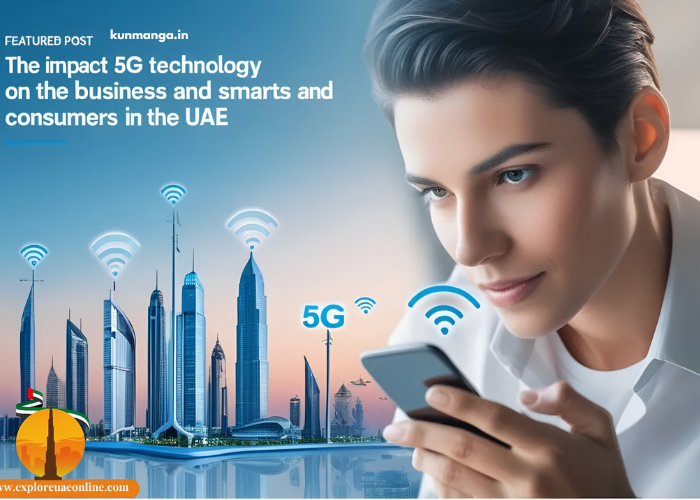The advent of fifth-generation wireless technology, popularly known as 5G, has emerged as a transformative force in the realm of connectivity. From enhancing business operations to reshaping societal interactions, 5G technology is a critical enabler of the digital age. This article explores the evolution of 5G, its revolutionary potential, and its profound impact on business and society, delving into key areas like innovation, economic growth, social inclusion, and challenges to its widespread adoption.
What is 5G?
5G is the fifth generation of mobile network technology, offering unprecedented speed, ultra-low latency, and massive connectivity compared to its predecessors. While 4G introduced widespread mobile internet capabilities, 5G takes this further by enabling real-time communication and higher data capacities.
The key features of 5G include:
- High Speed: Data transfer rates of up to 10 Gbps, significantly faster than 4G.
- Low Latency: Latency as low as 1 millisecond, enabling near-instantaneous communication.
- Massive Connectivity: The ability to connect up to a million devices per square kilometer.
- Enhanced Reliability: Greater network stability for critical operations.
The Evolution of 5G
From 1G to 4G: A Brief History
The journey of wireless communication began with 1G in the 1980s, which enabled analog voice communication. Subsequent generations brought revolutionary changes:
- 2G (1990s): Introduced digital voice, SMS, and basic data services.
- 3G (2000s): Enabled mobile internet and multimedia messaging.
- 4G (2010s): Transformed mobile connectivity with broadband-like speeds, enabling video streaming and IoT proliferation.
Development of 5G
The rollout of 5G began in the late 2010s, driven by advancements in network infrastructure and the demand for enhanced connectivity. With investments from major telecom providers and governments worldwide, 5G is poised to become the backbone of the digital economy.
Impact of 5G on Businesses
The introduction of 5G is redefining business landscapes, opening doors to new opportunities and efficiencies.
Enhanced Productivity and Innovation
5G empowers businesses with faster data transfer and reliable connections, facilitating:
- Real-Time Collaboration: Enhanced video conferencing and cloud computing capabilities.
- Automation: Powering Industry 4.0 with smart factories and autonomous systems.
- Data-Driven Insights: Seamless data collection and analysis for informed decision-making.
New Business Models
Emerging technologies like IoT, AR/VR, and AI thrive on 5G’s capabilities. This fosters innovation across industries:
- Healthcare: Remote surgeries and telemedicine are now more feasible.
- Retail: Immersive shopping experiences through augmented reality.
- Entertainment: Cloud gaming and 4K/8K streaming without buffering.
Revolutionizing Supply Chains
5G enables real-time tracking and management of supply chains, ensuring:
- Reduced operational costs.
- Increased efficiency in logistics and inventory management.
- Improved customer satisfaction with accurate delivery tracking.
Economic Growth
A study by IHS Markit predicts that by 2035, 5G will contribute $13.1 trillion to the global economy. Industries like manufacturing, healthcare, and IT are expected to witness significant growth, driven by 5G-enabled innovations.
Impact of 5G on Society
The societal implications of 5G are as profound as its business impact. From bridging digital divides to enabling smarter cities, 5G is reshaping the way people interact with technology and each other.
Enhanced Connectivity
5G promises to connect the unconnected, bringing high-speed internet to remote and underserved areas. This democratization of access can lead to:
- Improved Education: Online learning platforms become more accessible.
- Better Healthcare: Telemedicine services reach rural communities.
- Economic Opportunities: Local businesses access global markets.
Smart Cities and IoT
5G is a catalyst for the development of smart cities, enabling IoT devices to function seamlessly. Applications include:
- Smart Traffic Management: Reduced congestion and pollution through real-time monitoring.
- Public Safety: Enhanced surveillance and emergency response systems.
- Energy Efficiency: Smarter grids and sustainable resource management.
Social Inclusion
By bridging the digital divide, 5G fosters inclusivity, ensuring that marginalized communities gain access to essential services. This can reduce inequality and promote social mobility.
Environmental Impact
While there are concerns about the energy consumption of 5G networks, they also enable technologies that can reduce carbon footprints:
- Remote working reduces the need for commuting.
- Smart energy management minimizes waste.
- Precision agriculture optimizes resource use.
Challenges in the Adoption of 5G
Despite its potential, the adoption of 5G is not without challenges.
Infrastructure Development
Deploying 5G requires significant investments in infrastructure, including:
- Dense network of small cell towers.
- Upgrades to existing fiber-optic systems.
- Development of 5G-compatible devices.
Security Concerns
As 5G enables massive connectivity, it also raises cybersecurity risks:
- Potential vulnerabilities in IoT devices.
- Threats of espionage and data breaches.
- Need for robust security protocols and standards.
Regulatory Hurdles
Governments and telecom providers must navigate complex regulatory frameworks to ensure:
- Spectrum allocation and management.
- Compliance with health and environmental standards.
- Coordination across international borders.
Cost Implications
The cost of 5G deployment and adoption can be prohibitive, especially for developing countries. Addressing these costs is essential to ensure equitable access.
Future Prospects of 5G
The evolution of 5G is just the beginning. As the technology matures, it will pave the way for:
6G and Beyond
Research into sixth-generation (6G) technology is already underway, promising even higher speeds and advanced applications.
AI Integration
5G will amplify the potential of AI, enabling smarter algorithms and real-time decision-making in industries like healthcare, finance, and transportation.
Enhanced Human-Machine Interaction
Technologies like brain-computer interfaces and advanced robotics will thrive on 5G networks, revolutionizing human-machine collaboration.
Conclusion
The evolution of 5G marks a significant milestone in the journey of connectivity, promising transformative impacts on businesses and society. By enabling faster communication, fostering innovation, and bridging digital divides, 5G is not just a technological advancement—it is a harbinger of a more connected and inclusive future.
However, realizing its full potential requires concerted efforts to overcome challenges like infrastructure development, security, and affordability. As the world embraces 5G, its success will depend on how well we harness its capabilities for the greater good, ensuring that its benefits are accessible to all.
The future of 5G is bright, and its journey has only just begun.

